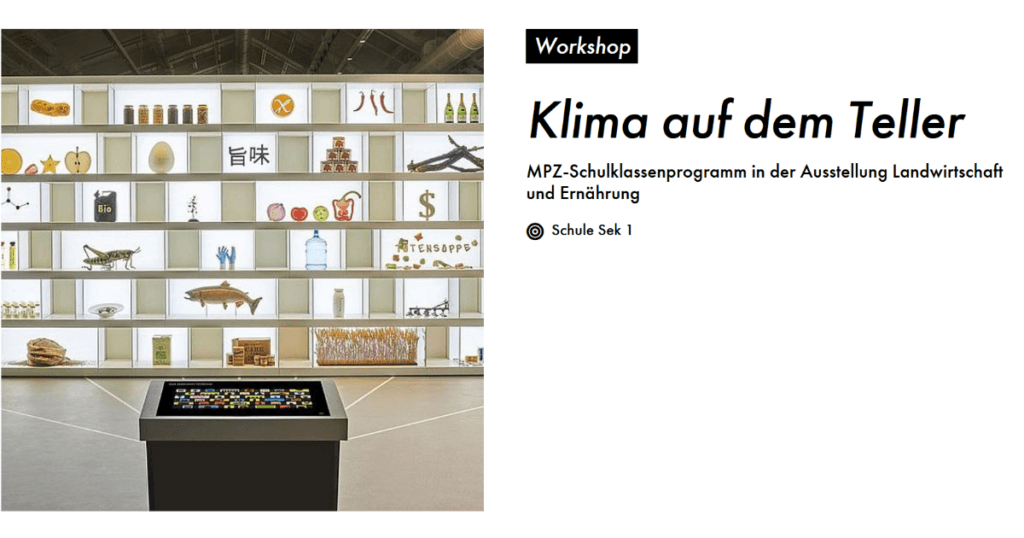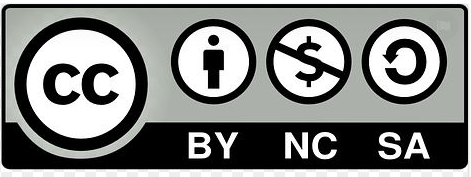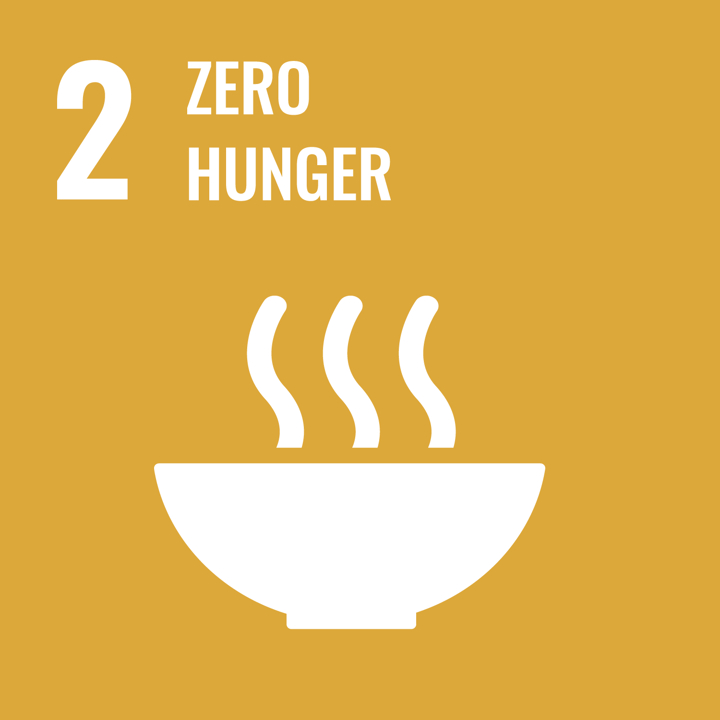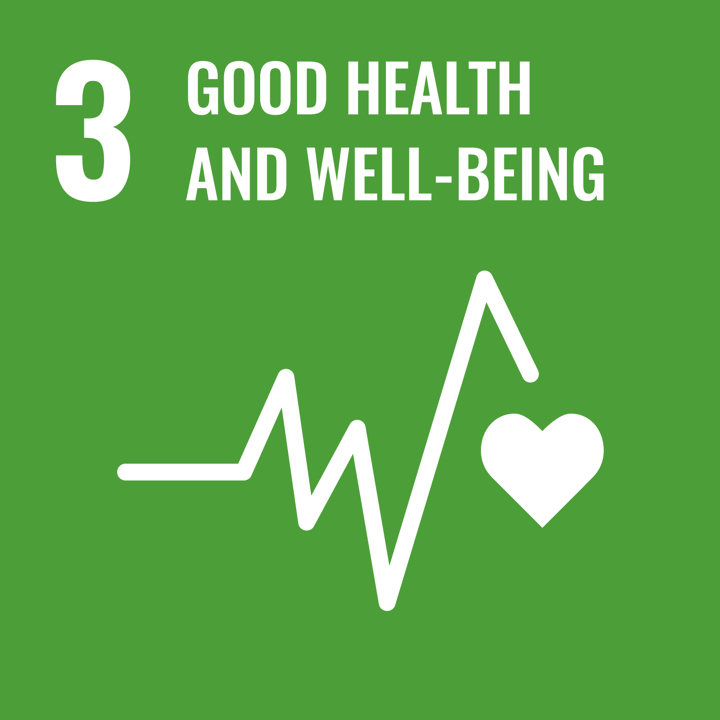
Intended End User: Teacher, Teacher Educator
Age Group: Lower Secondary; Upper Secondary
School Curriculum: Science; Social, Physical & Health Education; Social & Environment Science
Themes and Topics: Behaviour & Lifestyle; Economics; Futures Thinking; Food and Agriculture
Duration: 2 hours
Type of Resource: Workshop
Keywords: Interdisciplinary approach; Sustainable Nutrition, Consumer Awareness, Food Systems
Languages: English, German
Description
Our diet not only affects our health, but also people on other continents. In the “Agriculture and nutrition” exhibition at Deutsches Museum (Munich), we take a closer look at where our food comes from and the connection between climate protection and nutrition. We look at different eating styles and work with students and their teachers on how they can contribute to animal welfare and environmental protection through informed consumer behavior. How can we reduce our ecological footprint by eating responsibly? During the program, students work in groups on a digital pinboard using their smartphones. The digital pinboard provides background information, contains quizzes and promotes discussions among students. This program was designed by the MPZ (www.mpz-bayern.de).
How to use this resource
This workshop serves as a best practice example for integrating sustainability, nutrition, and climate protection into education. Designed by the Museums Pädagogisches Zentrum (MPZ), it provides an interactive and engaging learning experience that encourages critical thinking and informed consumer choices. Using a digital pinboard, students collaborate, explore background information, complete quizzes, and engage in discussions about the environmental impact of their eating habits.
Adapting the Workshop to Local Contexts
One of the key strengths of this workshop is its flexibility and adaptability. Teacher trainers can use it as a framework and adjust it to their local context by:
- Customizing content: Adapt food-related case studies, statistics, and real-world examples to reflect regional agriculture, food production, and dietary habits.
- Incorporating local sustainability challenges: Address country-specific environmental concerns, such as water consumption, deforestation, or carbon footprint from food transportation.
- Engaging students through technology: The use of a digital pinboard encourages interactive learning and can be adapted with locally relevant materials, quizzes, or discussion prompts.
- Connecting with local stakeholders: Collaborate with local farmers, environmental organizations, or nutrition experts to provide hands-on learning experiences.
By using this workshop as a template, teacher trainers can inspire educators to develop similar programs that promote sustainable thinking and responsible consumer behavior, while ensuring relevance to their own cultural, economic, and environmental contexts.
About the workshop
Students and teachers will learn about the carbon footprint of different foods, understanding how the production, transportation, and consumption of food affects greenhouse gas emissions. The program introduces participants to sustainable eating practices, such as choosing seasonal, regional, and plant-based foods. This can foster a greater understanding of global citizenship and the role individuals play in global sustainability. The topic of climate and food spans multiple disciplines, including biology, geography, economics, and ethics. Teachers can use this opportunity to link different subject areas and encourage students to see the interconnections between them.
The workshop format promotes active learning, where participants are not just passive recipients of information but actively engage in games, discussions, and problem-solving using the digital pinboard as a guide. Participants will develop critical thinking skills as they evaluate different aspects of food production and consumption. They might also explore the complexities of balancing environmental concerns with economic and social factors. These practical takeaways are valuable for everyday decision-making and lifestyle changes.
The resources
The task cards can be viewed here (please use an in-browser translation tool)::
The program can be viewed here::
Learning Outcomes
- Elicit prior knowledge and further develop knowledge and comprehension of key Sustainability Citizenship key concepts, challenging established worldviews and values.
- Apply a range of suitable tools and frameworks to promote student Sustainability Citizenship
- Reflect on practice and examine national curricula to identify opportunities to promote Sustainability Citizenship in interdisciplinary ways and engage with external stakeholders.
Green Competencies
- Embodying Sustainable Values: Valuing Sustainability; Supporting Fairness; Promoting Nature
- Embracing Complexity in Sustainability: Systems Thinking; Critical Thinking; Problem Framing
- Envisioning Sustainable Futures: Adaptability; Exploratory Thinking
- Acting for Sustainability: Individual Initiative
Creative Commons

This workshop, designed by Museums Pädagogisches Zentrum (MPZ), is licensed under a Creative Commons Attribution-NonCommercial-ShareAlike 4.0 International (CC BY-NC-SA 4.0) License. You are free to share and adapt the material for non-commercial purposes, provided appropriate credit is given and adaptations are shared under the same terms.
SDGs




